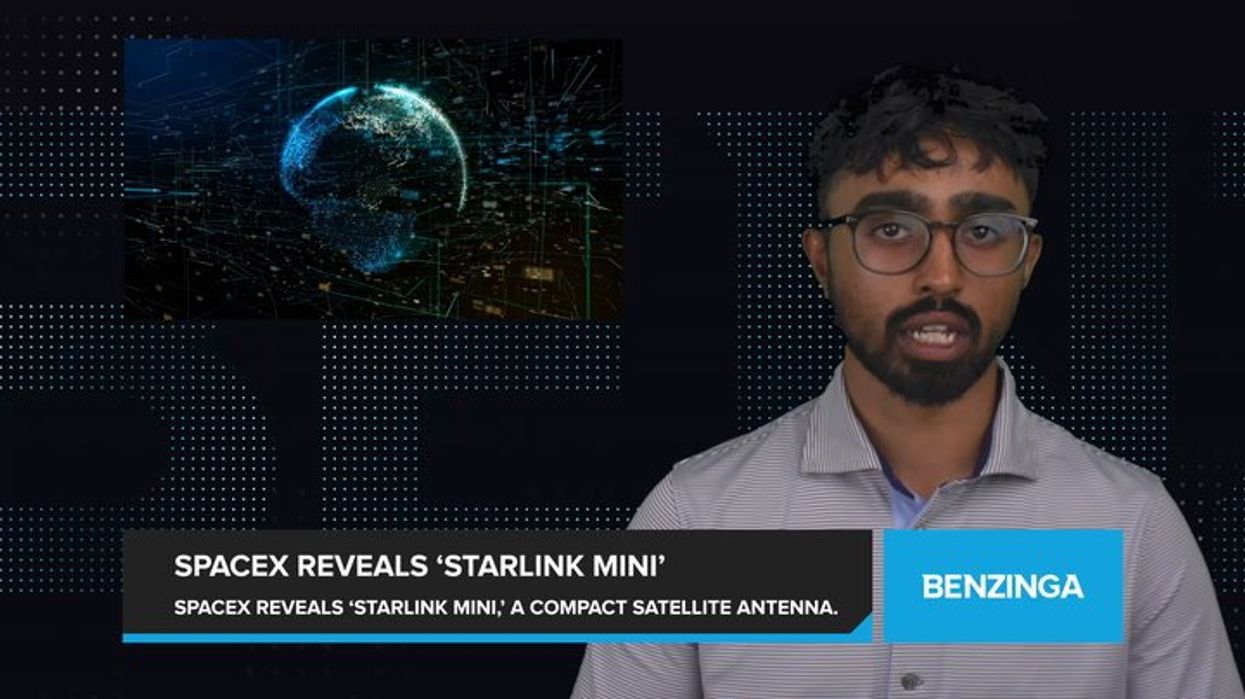Becca Monaghan
Jun 24, 2024
SpaceX Reveals 'Starlink Mini,' a Compact Version of Its Satellite Internet Antenna …
Benzinga - News / VideoElephant
New research has suggested that Elon Musk's Starlink satellites could damage the ozone layer once they have deorbited.
Researchers from the University of Southern California (USC) published their findings in the Geophysical Research Letters where they shared concerns that the SpaceX satellites could trigger harmful chemical reactions in the atmosphere.
The satellites are designed to burn in the atmosphere once their service lives end. They emit aluminium oxide gas which may weaken the ozone layer, researchers explained. This could lead to reactions with chlorine and therefore destroy ozone molecules.
"Only in recent years have people started to think this might become a problem," one of the study authors Joseph Wang, said. "We were one of the first teams to look at what the implication of these facts might be."
The ozone layer is a region of Earth's stratosphere that absorbs most of the sun's ultraviolet radiation.

"The environmental impacts from the reentry of satellites are currently poorly understood," scientists said.
SpaceX has launched over 6,000 satellites to beam internet, with each new model getting heavier. In 2022 alone, researchers suggested that satellites may have contributed around 17 tonnes of tiny aluminium oxide particles.
Scientists are specifically concerned about the demand for global internet coverage which is ramping up more launches of the communication satellites.
SpaceX has permission to launch a further 12,000 Starlink satellites. Amazon and other tech companies also plan on launching thousands more satellites in years to come.
"As reentry rates increase, it is crucial to further explore the concerns highlighted in this study," researchers added.
How to join the indy100's free WhatsApp channel
Sign up for our free Indy100 weekly newsletter
Have your say in our news democracy. Click the upvote icon at the top of the page to help raise this article through the indy100 rankings.
Top 100
The Conversation (0)














